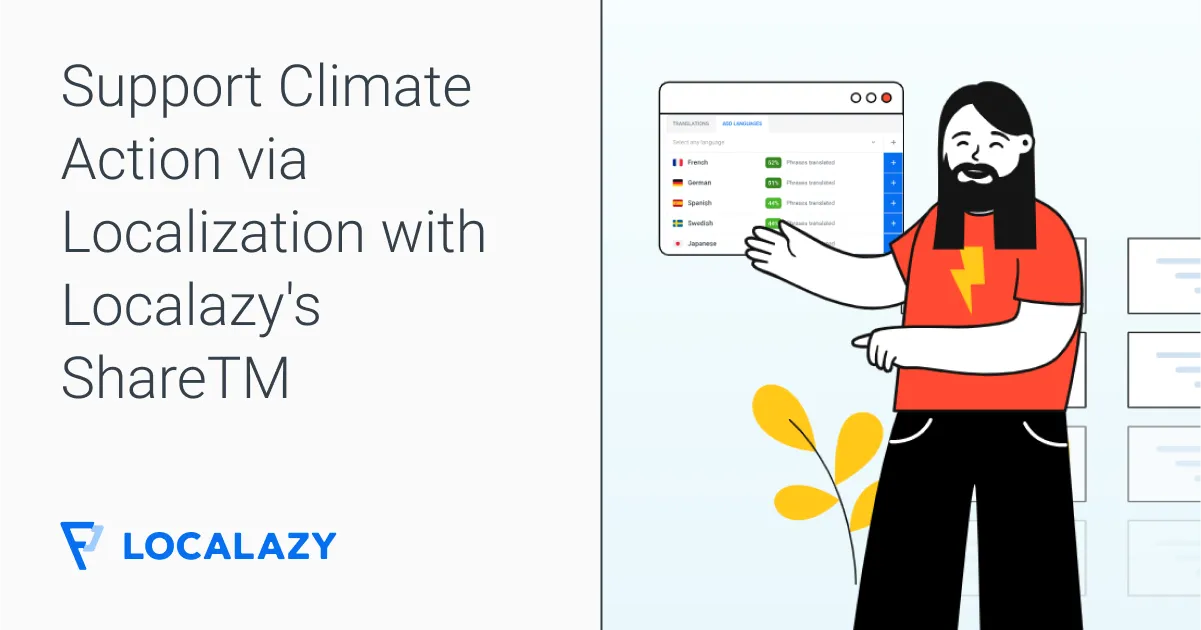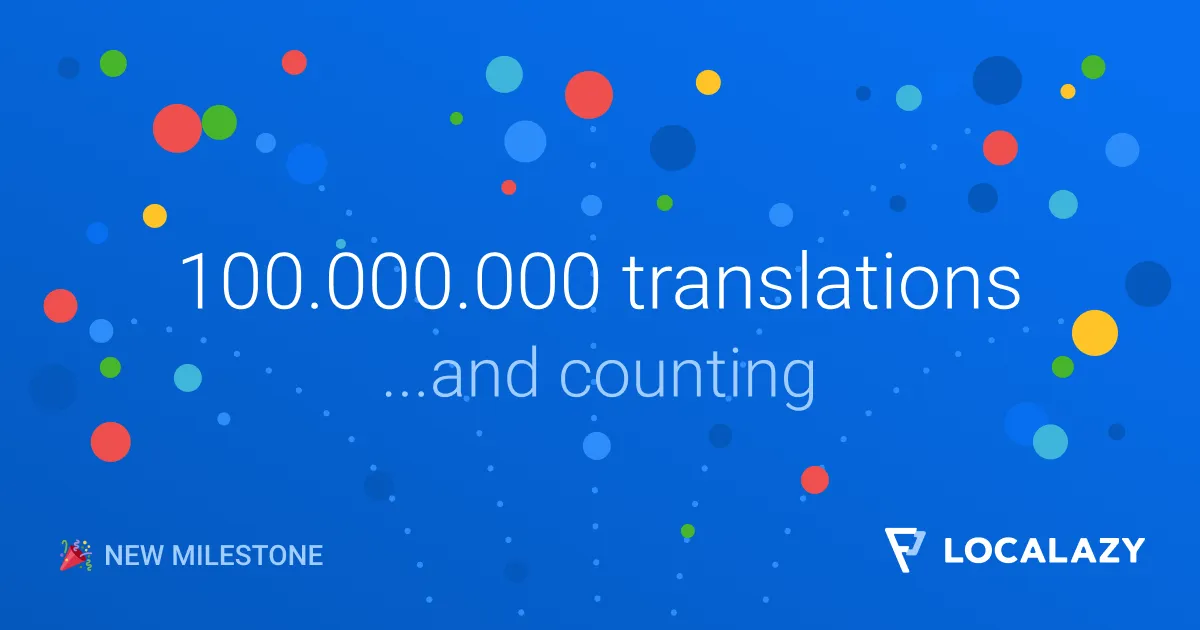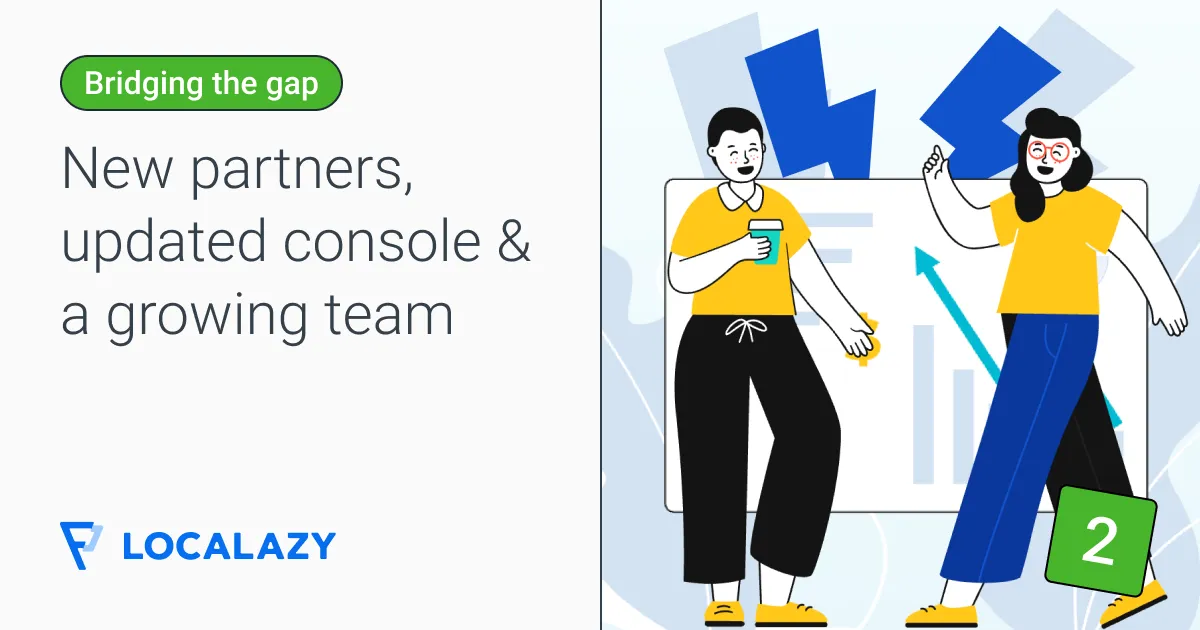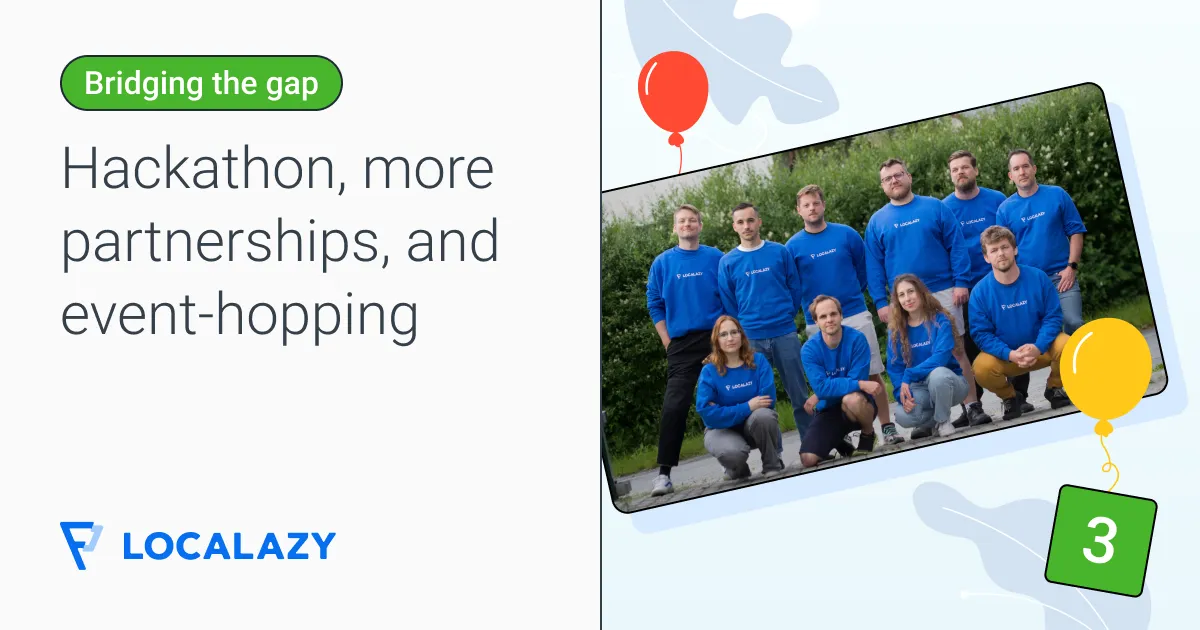Many of the problems that startups and individuals have to face worldwide in relation to climate challenges are not caused by a lack of financing: it's simply about communication barriers. Contrary to popular belief, English is not mastered everywhere, and it certainly isn't the first language for many communities, including those in Europe and the West.
This is why we have launched a new Shared Translation Memory 🤝 focused on Climate Research that is already available for everyone to explore.
🙌 Join us now and help us create the best Shared Translation Memory for Climate Research! 🌎
If we want to effectively build bridges to link communities worldwide, we'll need tools to make it easier. One way is using the knowledge our users already have (and a bit of their time 🙏) to tackle the climate change challenge we're facing. And that's where our Shared TMs come into play.
🤔 What is this about? 🔗
Here at Localazy, we are proud to support bold causes, and we are pretty sure that climate action is one of the topics all of us shall take care of. Humanity must address many sustainable development goals as there is no planet B. Naturally, communicating is the first step to finding the right solutions, but language barriers still play a huge role in inhibiting sustainable development.
Our shared translation memory for all climate action-related causes acts as an open-sourced repository of translated strings in +90 languages. It's currently available via GitHub, so every developer, researcher, or commercial company with a bold mission can use it for its own purposes.
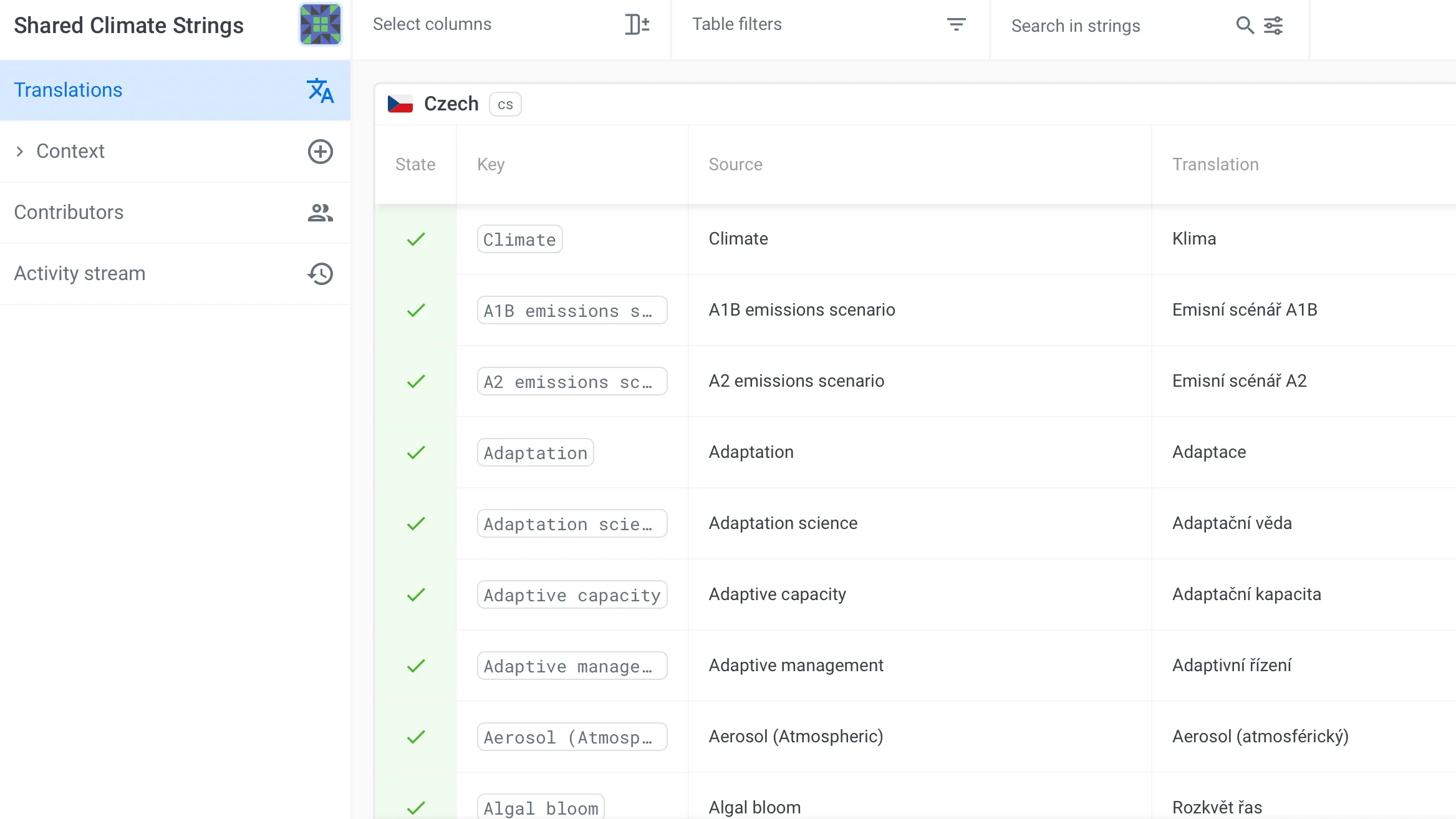
📒 What is a translation memory? 🔗
A translation memory is a repository of translated terms that can be used as a reference point in a localization project. It helps increase translation productivity and cut costs. In this particular instance, it can help project managers, companies, and language professionals over the world to expedite translation projects focused on climate research terminology, which is getting increasingly vital.
Shared translation memories are one of Localazy's core features. They are our very own hive mind 🐝! They allow users to contribute to crowdsourced initiatives in a breezy way while providing suggestions for future localization projects, making the translation process easier for everyone involved. Specifically, Shared TMs focused on industry jargon or terminology can be of great help during the launch and expansion of an international project.
❓ Why's 🔗
Climate change is one of humanity's biggest challenges, and time is ticking. We simply want to make a difference, and there's proof that committing to the UN's Sustainable Development Goals is good for the planet and good for business. Let's break it down.
Learn more about Localazy for Climate Research 🍃
Some convincing figures 🔗
1. The global average temperature has increased by 1.1°C since the pre-industrial period, and a 1.5°C increase is expected over the next 20 years (🌡️ IPCC, 2021).
2. The concentration of carbon dioxide (CO2) in the atmosphere is now at its highest level in at least 800,000 years (💨 NASA, 2021).
3. The Arctic sea ice extent has decreased by almost 13% per decade since 1979, and the last seven years have collectively been the warmest on record (🧊 NASA/NOAA, 2022).
4. Global sea levels have risen by about 8 inches (20 cm) since 1880, and the rate of sea level rise is accelerating (🌊 NASA, 2022).
5. Human activities are responsible for almost all of the observed warming since the mid-20th century (🏭 IPCC, 2013).

Good for the planet, good for business 🔗
Building synergies around the UN SDG framework has clearly shown that a purposeful cause can also be a great business, as the world's famous brands, such as Unilever Global, have already demonstrated. As one brilliant businessman said, "There is no business on a dead planet." We stand by this statement.
In the case of Localazy, people with local knowledge can provide their expertise to worldwide companies. In multiple instances, we have found that our freelance translators in remote locations were able to support their families with much-needed income. All they need is a decent internet connection and a computer or smartphone.
Well-managed localization can have a vast multiplication effect on impact, whether you want to track air pollution, file a report on climate change or localize medical devices to speak the native language of their users.
Localization is unique in one thing: despite its particular activity and the fact that is hidden from the end-user (if done well), the need for localization is present in nearly every industry. We believe that well-managed localization can have a vast multiplication effect on impact, whether you want to track air pollution, file a report on climate change or localize medical devices to speak the native language of their users.
Our goal is to connect climate researchers on different continents by building relationships with a solid base of locals who know their native languages, propelling change from the ground up.
Africa: a case study 🔗
Localization has proven to be instrumental in the African continent, where businesses and a great deal of untapped talent have been able to thrive when language gaps have been tackled. Crucial social causes like the fight against HIV have also benefitted from localized sensitization, as Nigerian journalist Chidinma Iwu explains in this article.
It is, however, a massive undertaking, as the African language ecosystem is very vast and complex. It is, in fact, the most linguistically diverse continent out there: over 2,000 languages and dialects (one-third of the tongues worldwide! 😮) are spoken in this continent, inhabited by 1,300 million people. According to African software developer and technical writer Mary Okosun, diversity is boundless within different countries. "In Nigeria, there are multiple communities aside from the major tribes, which are Igbo, Yoruba, and Hausa. These tribes are known to speak a particular language, and within these tribes, we might also hear different accents from the same tribesmen", she explains.
Africa is the most linguistically diverse continent. Over 2,000 languages are spoken there, which amounts to one-third of the tongues worldwide
As Okosun points out, business communication is not a problem in cities, where English is largely predominant, but "when venturing into a business that has its active market predominantly based in the rural areas and communities, it is important to be able to speak the local languages in order to have a seamless transaction."

Software engineer Moyinoluwa Adenuga, also from Nigeria, describes it similarly: "I am from Ogun state and the Yoruba tribe. The general native language across the tribe is Yoruba, but there are even more dialects within the tribe based on locality. I had the opportunity to live in the northern part of Nigeria for a year, and it was quite shocking to me that their native language was more pre-eminent than the official English language. When I was there, I really found it very difficult to communicate with others. I had several ideas/projects I wanted to work on, but it was really impossible as basic communication was an issue".
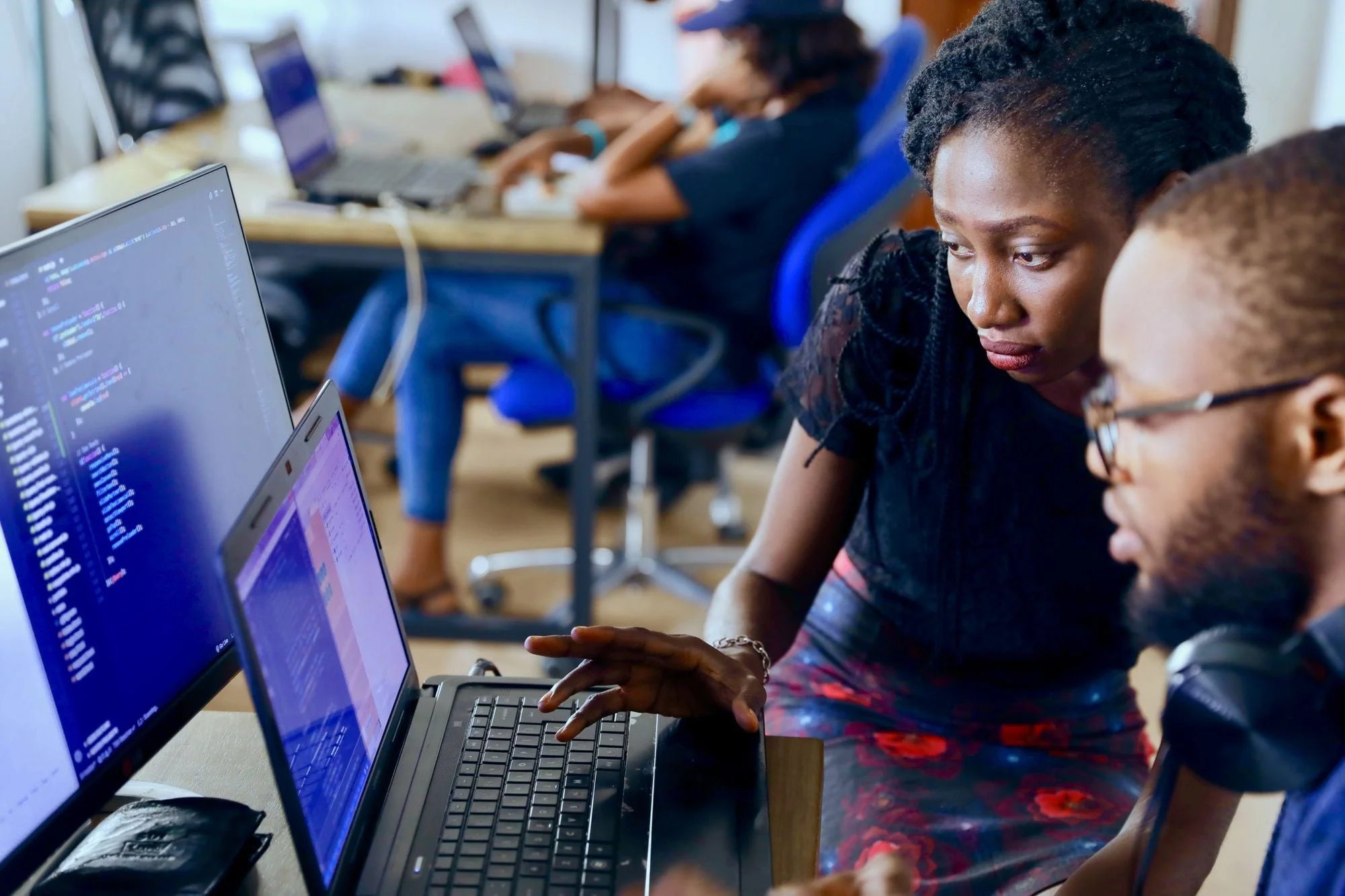
Both professionals believe that a project like Localazy's Climate Strings can significantly propel change in their areas. And they also see its potential for other sustainable development goals within the continent, such as 👩🏫 quality education and 🌱 economic growth. As Okosun stresses, "For communication between student and teacher to work effectively, there should be no language barrier. So in an instance where language barriers still play a huge role, getting quality education might get hindered".
🤝 How to join 🔗
You can join simply by visiting the Shared Climate Strings project and getting started with translation into your language. Especially welcome are languages where machine translations could not help, like the African variants. We've started out adding the main Western languages, like English, German, Spanish, or French, but we need extra help to expand our database.
Some examples are:
- African languages & dialects such as Amharic, Afar, Ibibio, Masai, Rundi, Tyap, Nigerian Pidgin, Oromo, Tiv, or Swahili (Kenyan, Tanzanian, Congonian, and Ugandan varieties).
- Asian languages such as Gujarati, Filipino, Hebrew, Korean or Japanese, as well as regional variants of the Arabic language.
- Regional European tongues such as Catalan and Basque.
If you speak some of these languages and care about climate change, you can help us populate our translation memory. Just log into your Localazy account (or create one if you haven't already) and join our Shared Climate Strings project to make your contributions! 🤗
